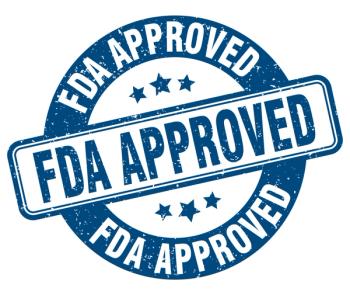
It's a drag, but ASHP is pushing smokers to quit
Can pharmacists play a major role in helping patients to kick butts? ASHP and the Joint Commission on Accreditation of Healthcare Organizations aren't taking No for an answer.
Can pharmacists play a major role in helping patients to kick butts? ASHP and the Joint Commission on Accreditation of Healthcare Organizations aren't taking No for an answer.
Armed with a grant from the Robert Wood Johnson Foundation and the Smoking Cessation Leadership Center at the University of California, San Francisco (UCSF), ASHP is spearheading the Pharmacy Partnership for Tobacco Cessation. Meanwhile, JCAHO recently conducted a study to examine the types of counseling hospitals offer patients to help them quit smoking.
ASHP's and JCAHO's efforts come at an opportune time in view of the recent death of news anchor Peter Jennings from lung cancer and the lung cancer diagnosis of Christopher Reeves' widow, Dana. Separately, the National Cancer Institute (NCI) announced it is launching an effort to reduce the suffering and death due to lung cancer by 2015.
Cynthia LaCivita, Pharm.D., ASHP director of clinical standards and quality, who is leading the partnership's activities, told Drug Topics, "Pharmacists need to ask patients the question, 'Do you smoke?' We want to have a significant impact on increasing pharmacists' awareness with regard to asking that question, and we want to increase patients' awareness that pharmacists are a good resource," she said.
According to Frank Vitale, national director of the program and a psychologist at the University of Pittsburgh School of Pharmacy, three studies that were part of a resident's project at UCSF reveal that only 5% to 7% of patients recall ever having been asked by a pharmacist whether or not they use tobacco. "The goal of this project is to increase that percentage to 20% of patients in the next two years," he said.
Vitale said that the partnership's slogan is "Motivate, educate, and refer" patients who smoke. "When pharmacists look at patients' records, information on smoking habits should be readily available. Pharmacists can educate patients that smoking interferes with the clearance or uptake of specific drugs," he added.
Vitale noted that the chemicals in cigarettes increase the risk for stroke in women who take birth control pills and that taking birth control pills is, in itself, a risk factor for stroke. "Combining smoking and birth control pills increases that risk significantly, especially for those over 35 and those who smoke more than 15 cigarettes a day," he said.
"Pharmacists can educate on the need for behavior change programs and refer people to state and national quit lines, products, and cessation programs from various associations and organizations," Vitale said.
Vitale went on to explain that patients frequently don't read the directions on smoking-cessation products, and they use too little of the products or they don't take them for the right amount of time or they take the wrong dosage. He suggested that pharmacies put a procedure in place by which patients who buy cessation products are referred to the pharmacist who can explain how to use the product. "That would be a huge intervention, and it can be done in five minutes in most cases. Then R.Ph.s can refer patients to more intensive programs," he said.
Pharmacists can also remind patients that smoking-cessation products have behavior modification programs associated with them and that by calling the 800-number on cessation products, they can get educational materials and access to Web sites.
Steven A. Schroeder, M.D., Distinguished Professor of Health and Health Care and director of the Smoking Cessation Leadership Center, said it is critical for pharmacists to know whether patients smoke, especially if they have clinical conditions such as angina and congestive heart failure. "If they smoke, they'll have a worse outcome," he said.
Schroeder noted that psychiatric patients who smoke might need to take a higher dose of their medications because smoking makes the liver break down medicines faster.
The partnership will be giving out cards with the 1-(800) QUIT-NOW phone number to pharmacists so they may pass them out to patients.
For more information, visit http://
Newsletter
Pharmacy practice is always changing. Stay ahead of the curve with the Drug Topics newsletter and get the latest drug information, industry trends, and patient care tips.























